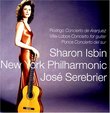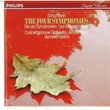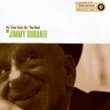| All Artists: Johann Sebastian Bach, Richard Troeger (performer) Title: J.S. Bach: The Seven Toccatas Members Wishing: 0 Total Copies: 0 Label: Lyrichord Discs Inc. Original Release Date: 1/1/2000 Re-Release Date: 3/28/2000 Genre: Classical Styles: Chamber Music, Historical Periods, Baroque (c.1600-1750), Classical (c.1770-1830) Number of Discs: 1 SwapaCD Credits: 1 UPC: 744457804124 |
Search - Johann Sebastian Bach, Richard Troeger (performer) :: J.S. Bach: The Seven Toccatas
 | Johann Sebastian Bach, Richard Troeger (performer) J.S. Bach: The Seven Toccatas Genre: Classical
|
Larger Image |
CD DetailsSimilarly Requested CDs |
CD ReviewsWhile a clavichord gently weeps Luiz Fernando de Souza Passos | Manaus, AM, Amazonas, Brazil | 07/03/2001 (5 out of 5 stars) ""August, 1717. Johann Sebastian Bach woke up late that night. He had insomnia, after tough disputes with duke Wilhelm Ernst von Weimer. He lighted up a candle without a noise, avoiding to disturb Maria Barbara and the four children. He put the slippers on, and sat by the clavichord, ten steps away from his sleeping bed. That was a place he loved the best, a place where he actually dreamed, whispered, confessed. He put his fingers on the slender keys and the most delicate of sounds filled the small chamber and thrilled the dark and silent Thuringian night. He did not need a might organ or a sparkling harpsichord to express his aching sentiments, his most intimate feelings. The clavichord was the closer voice of his soul. His fingers swept up and down. An adagio. A fugue. A toccata was being conceived. His genius triumphed by outpouring smoothly and passionately his celestial art. Maria Barbara and the children slept quietly, while a clavichord gently wept, that dark and silent Thuringian summer night."This vignette underscores the place and specificity of the clavichord in Sebastian's time and, by extension, today. In the wake of the revival of period instruments, as a matter of fact the harpsichord reigned absolutely, for at last fifty years. Not without merit, specially considering the help of artists like Wanda Landowska, Ralph Kirkpatrick, Gustav Leonhardt, Kenneth Gilbert, to mention but a few. Nevertheless, this exclusivity is neither historically correct nor artistically fair. The clavichord had - and has - a place of its own in music making, with its very peculiar accent and character. The sentiment it transmits is quite unique. I agree: it is not suitable for large public performances like its wealthier brothers, the organ and the harpsichord. But it has an exact niche in music listening today. You must observe, however, the exact way to relish your session: take a very small room, silent, cozy, with the lowest volume of sound; you stay close to the speakers, low bass, median treble, no talking, no reading, no distractions. Just merge yourself with the delicacy of sound, the tiny vibrato, the clear phrasing and the sweet articulation of the instrument. A glass of Chardonnay is admitted. Minimalism all over. Transfiguration. Music at its purest and most magic moment.Clavichord records used to appear only occasionally on the market - first on vinyl, now on CD - from the 70's to the 90's. I keep with love and affection some of these rare but fine examples: Colin Tilney's WTK first book, on Hyperion; Christopher Hogwood's Emmanuel Bach's sonatas (and a superb sonatina!) on L'oiseau Lyre; Gustav Leonhardt's assorted program, featuring Sebastian's 2nd French Suite, on Phillips. But now the door has opened wide and the whole Sebastian's keyboard oeuvre is becoming available on the clavichord thanks to the endeavor of Lyrichord Discs and Richard Troeger. And, that's important, with the highest artistic accomplishment these pieces are worth of. Richard Troeger is a sensitive performer, technically faultless, with a splendid ability to extract all the nuances and small secrets the clavichord has to offer the attentive listener. Lyrichord's engineers succeed in capturing the clearest of sounds, not to close and harsh, not to distant and evasive. The team - performer, producer, engineers - are building a landmark in music industry, that surely will help to rescue definitively the clavichord from oblivion.Yet, another dogma is being broken: since the early biographers (Spitta, Forkel) only easy and didactic pieces were considered appropriated for the clavichord. What a great mistake! Richard Troeger demonstrates with the seven Toccatas (as he did before with the six Partitas) that these "more complex" pieces are full of richness and details to be unveiled by our delicate instrument. The toccatas begin with dramatic recitatives and then interweaves cantabile adagios with fugues - some simple and melodic, some overworked but riveting, yielding moments of pure emotion and enjoyment, enhanced by the subtle and distinctive singing of Troeger's clavichord. Give it a try." Shining and glistening shallots | 07/16/2009 (5 out of 5 stars) "I don't find this instrument to be intimate or delicate. For the inventions, I couldn't keep Troeger on my play list. I ended up preferring Jaccottet's harpsichord to bring out the "smallness" of those lovely little pieces. I find the brashness of the toccatas to match the earthiness of Troeger's instrument and the introspective propulsion of Troeger's playing. I also much admire Troeger's Art of the Fugue. The clavichord, to me, is of the earth; it is copper, tin, coal and dirt. Sometimes shiny and sometimes dark. Anyway, I love this recording. Troeger produces a really interesting, and often profound, take on Bach." Toccatas Matthew Zawadzki | 03/16/2009 (5 out of 5 stars) "Rarely a clavichord recording of Bach's works is published. It is a very specific instrument with a very peculiar sound. I would call this the precursor of the pianoforte, for you can definitely discern between loud and soft on this recording. This was also Bach's favourite instrument."
|

 Track Listings (7) - Disc #1
Track Listings (7) - Disc #1




